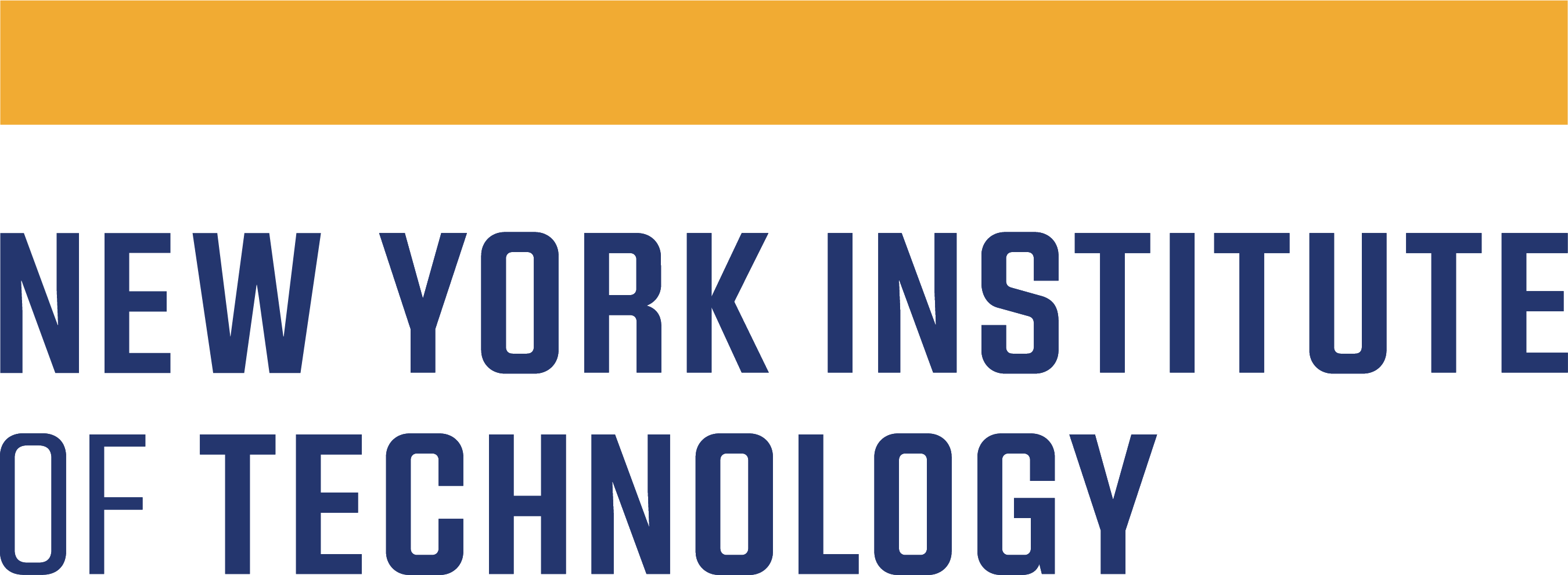Research Alert
Newswise — The Centers for Disease Control and Prevention estimate that about one in 36 children and nearly 5.5 million adults in the United States have autism spectrum disorder (ASD). In recognition of Autism Acceptance Month—formerly known as Autism Awareness Month—New York Institute of Technology highlights one university expert whose research is helping to improve the lives of children affected by ASD.
Research by Alexander Lopez, J.D., OT/L, associate professor of occupational therapy at New York Institute of Technology, explores how exercise and physical activity can improve motor and cognitive function in children with autism.
"Children with autism may present with delays in motor and information processing skills, resulting in impairments in play and mainstream recreation activities. These deficits often cause children who are 'delayed' to be alienated, marginalized, and deprived of opportunities to participate in mainstream sports," says Lopez, who is also the founder of the nonprofit gym Inclusive Sports and Fitness, Inc. (ISF), based in Holbrook, N.Y.
"The good news is that the brain and body are exceptionally malleable, and occupational therapy interventions can be effective in changing brain performance. Children with special needs can develop strategies for minimizing or controlling the effects of unpleasant or confusing sensory information with skilled interventions."
Lopez, who has more than two decades of experience training healthcare professionals to work with students on the autism spectrum, has developed targeted athletic programs designed to enable a child’s brain to process sensory information in ways that promote structural and functional brain changes.
"We rewire the brain by utilizing strategies that enable it to process sensory information in a more functional manner. Recognizing that every play experience is a brain experience, we enlist a number of strategies to promote structural and functional brain changes. Strategies can be specifically designed to motivate and engage children while addressing their unique sensory-motor, psychosocial, and cognitive-behavioral needs," he says.
In one ongoing study, Lopez and faculty from the university's College of Engineering and Computing Sciences are monitoring and quantifying brain performance while ISF athletes with autism perform certain activities. The study leverages state-of-the-art wearable technology and machine learning algorithms to analyze how occupational therapy interventions improve coordination and neurological processing. Lopez hopes that the results will indicate which occupational therapy interventions enhance children's sensory processing and coordination, providing valuable information that could be used to personalize a treatment plan.
With the help of New York Tech occupational therapy students, Lopez is also studying the impact of high-intensity running programs and sensory motor integration with cognition, behavioral, social, and emotional regulation in children with disabilities. In a supportive environment, ISF athletes are cheered on by coaches and their peers as they gain strength and endurance, as well as lasting friendships and confidence, which spills over into every aspect of their lives. Lopez notes that parents have reported positive outcomes at home and school, including emotional, behavioral, and cognitive performance improvements.
“With effective therapies delivered by trained healthcare specialists, children with autism can become less marginalized, more independent, and participate meaningfully in everyday life,” says Lopez.
Alexander Lopez is available for interview/comment. Contact [email protected].
Article Multimedia

Credit: New York Institute of Technology
Caption: ALEXANDER LOPEZ, LEFT, AND NEW YORK TECH STUDENT JACINDA AYRES STUDY THE IMPACT OF HIGH-INTENSITY RUNNING PROGRAMS AND SENSORY MOTOR INTEGRATION WITH COGNITION, BEHAVIORAL, SOCIAL, AND EMOTIONAL REGULATION IN CHILDREN WITH DISABILITIES.

Credit: New York Institute of Technology
Caption: ALEXANDER LOPEZ


